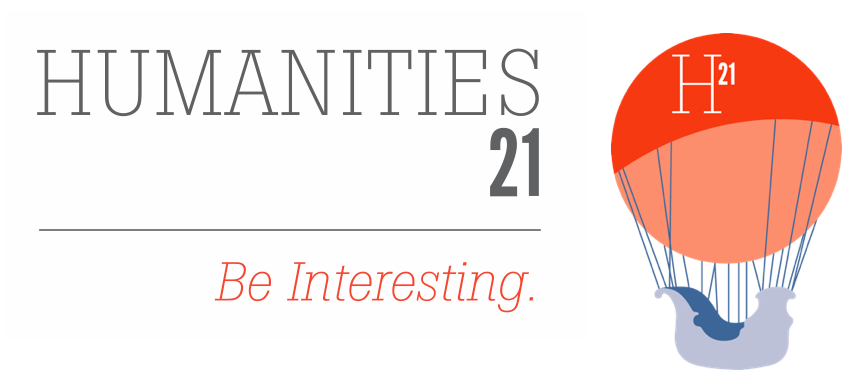Arts@work profile — sean brown
Sean Brown works as a Data Manager (Data & Insights) with the Victorian Government.
Sean completed a Bachelor of Arts at Deakin University where he majored in International Relations and Asian Studies. He then went on to do his honours year at Monash specialising in Japan-Taiwan relations, focusing on North Asia.
Read more about Sean’s career journey below.
What did you study and what inspired you to pursue this path?
I ended up with a major in International Relations and Asian Studies [from Deakin University], but to be honest, I was always interested in history and understanding the world and why it is the way it is. I did general history subjects, focussing a little more on Australia’s region because I didn’t know much about that. Through that, I learnt about power structures and did a bit of anthropology – different ways of conceiving the world and different societies. I did my honours year at Monash on Japan/ Taiwan relations, so focusing a lot on North Asia.
What is your current occupation?
I’m working at the Victorian Government – Jobs, Precincts and Regions. My current role is Manager of Data and Insights. I don’t have a data science background at all - I’m more trying to leverage technology and people with technical expertise to provide answers to people who need them. At the end of the day, you’ve got technical systems, technology, data, all this great stuff happening, but it’s humans that make the decisions and humans that have to access that information.
What aspects of your role do you enjoy the most?
I enjoy learning about the different technologies and where they’re going. But in the role itself, it’s probably getting diverse groups together and sharing data sets and generating new insights which we hadn’t done before. Seeing all these things align – I enjoy that. But I also really enjoy when you take large disparate data sets and generate something which is usable, and you generate new insight or something that people find helpful and easy.
Thinking back, what was a highlight of your tertiary study?
Graduating with an honours degree was a pretty great moment! Things that I really enjoyed when I was studying was when I spent a lot of time researching, working at something, looking at lots of sources – and the moment where it all falls together when you get that bit of insight. That moment is what I really enjoyed about studying!
Were there any co-curricular activities you found particularly valuable?
I would have loved to have done more [co-curricular activities], but I had a part-time job. I did get involved with the Model UN, which was really interesting. I also got involved with helping out with international students. It’s all good and well to learn about a country’s history or a region, but it’s also something to interact with people from those regions. That’s helped me in other roles – having that experience and engagement with people from different cultural backgrounds.
How do you think your humanities education has shaped you personally and professionally?
Personally, it’s probably made me a more analytical person. I was always a bit like that anyway, but it’s made me even more so getting that structure around it and getting into the habit of critical thinking for a long period of time.
That’s been incredibly important in my professional life as well. It’s critical thinking that’s really helped me in my career and I’ve gotten that from a humanities degree. Also, the ability to understand other perspectives. In the humanities - a lot of the time you’re in other peoples’ heads. If you’re reading literature or politics or philosophy, you just get used to seeing things from different perspectives. And that’s incredibly useful in the workforce – being able to understand different perspectives and view problems from multiple angles. The humanities degree has really helped with that.
I would also say (especially with the data analyst side) – 9 times out of 10 it’s trying to figure out what the question is. I really enjoyed the last couple of years at uni where I got to make up my own essay questions. Getting to understand what the questions are and what are good data sets, that’s incredibly important and is something that is increasingly valued by businesses and organisations. And I think humanities students are generally quite well placed to do that – they’re used to working in an unstructured space. Being comfortable with uncertainty is a strength that the humanities have.
What career advice would you give to current students or recent graduates?
For recent graduates: I always try to get jobs in areas/ organisations that I found interesting, and not necessarily my dream role to be with. But through that, I got more exposure to different areas.
For general career advice: You’re always learning – you should always be up to trying different things or going into areas where you’re not totally [an expert]. If you’re 70% there, have a crack – apply for it! If there are 10 criteria and you meet 7 of them – apply!
Finally, what book have you recently read that truly captured your attention?
Earth Abides by George R. Stewart – I read it a couple of weeks ago and it’s actually quite timely. What happens is an illness wipes out most of the Earth’s population. It’s told from the perspective of a geographer who survives and about how society rebuilds. And it’s virtually one of the first stories to explain environmental processes and how that impacts human societies, and in turn how humans interact. It’s really, really well done and it’s an apocalyptic story in which there’s no marauding barbarians and fighting – it’s just people reengaging with the environment and each other in a different way


